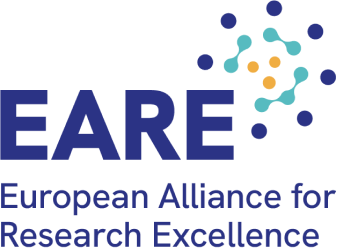
EARE’s Statement at WIPO’s Conversation on Intellectual Property and Artificial Intelligence
Second Session, July 7 to 9, 2020
Thursday, July 9, 2020
Session 3: Data: Copyright in Training Data, Further Rights in Data and Trade Secrets
Monsieur le Président,
I am speaking today on behalf of the European Alliance for Research Excellence, a coalition of companies and research organisations that are committed to the future of innovation and R&D in Europe. We very much welcome the opportunity to provide comments on W.I.P.O’s revised Issues Paper on Intellectual Property Policy and Artificial Intelligence.
Since 2017, we have been advocating for copyright rules in Europe that enable a fair and effective use of Text and Data Mining (TDM) through a broad, easy-to-understand TDM exception. In this regard, we will focus our intervention on points listed in today’s agenda, namely Issues 8, 11 and 14.
In our contribution to the first draft of the Issues paper, we underlined that we believed the key issues related to TDM were correctly identified through these points. TDM is a building block for both machine and deep learning: without the ability of computers to analyse very large amounts of data, employ cognitive technologies to allow the learning of patterns, AI is not possible.
Today, we wish to contribute additional thoughts on how the appropriate international IP framework can be put in place to generate opportunities from the power of data.
On Issue 8, Copyright Infringement and Exceptions, we strongly believe that the right exceptions to copyright are required to support the development and training of AI applications. In that regard, it is important to note that TDM and machine learning are not about enabling access to copyrighted material for free, but on the contrary, they are about understanding the works accessed legally to identify patterns, facts, and correlations locked within these works. TDM and machine learning may require automated, incidental storage of lawfully accessed copyrighted works to access non-copyrightable information. However, the results of TDM do not result in a copy or substantial taking of the material from which the data is used to train the AI application. The process and results of TDM do not imply the underlying expressive value of the copyrighted work, and do not interfere with economic value or business models associated with publications. In this regard, in order to allow the development of Artificial Intelligence, we support exceptions, like the one adopted at the EU level in 2018, or the fair use doctrine applied in the US. We would also recommend that W.I.P.O considers how the international copyright system could ensure that copyright subject matter does not extend to “ideas, procedures, methods of operation or mathematical concepts as such”, in accordance with TRIPS Article 9(2).
On Issue 11, Further Rights in Relation to Data, we believe that current mechanisms in place today such as existing IP rights, and contractual law, such as data-sharing agreements, provide adequate protection for data. As such, we strongly encourage W.I.P.O to consider all existing IP rights in data and databases, in order to carefully assess if further rights are needed in relation to data.
On Issue 14, Trade secrets, EARE strongly supports the principle that data should be “as open as possible, as closed as necessary”, and that when it comes to data, sharing is winning. Companies should be able to protect the data that they consider to be commercially-sensitive should they wish to, using current laws on trade secrets, but should also be encouraged to share them in a safe and trusted way if they wish to, through contractual agreements for instance.
To conclude, Monsieur le Président, we believe that creating additional rights in order to protect data beyond what is already available today is not necessary and could actually impede innovation by placing unnecessary barriers to the use of data for developing artificial intelligence and related technologies.
We would like to thank W.I.P.O for convening this forum to discuss the very important issue of AI and IP rights, and welcome every opportunity to continue to be engaged in W.I.P.O’s future conversations on AI and IP.


